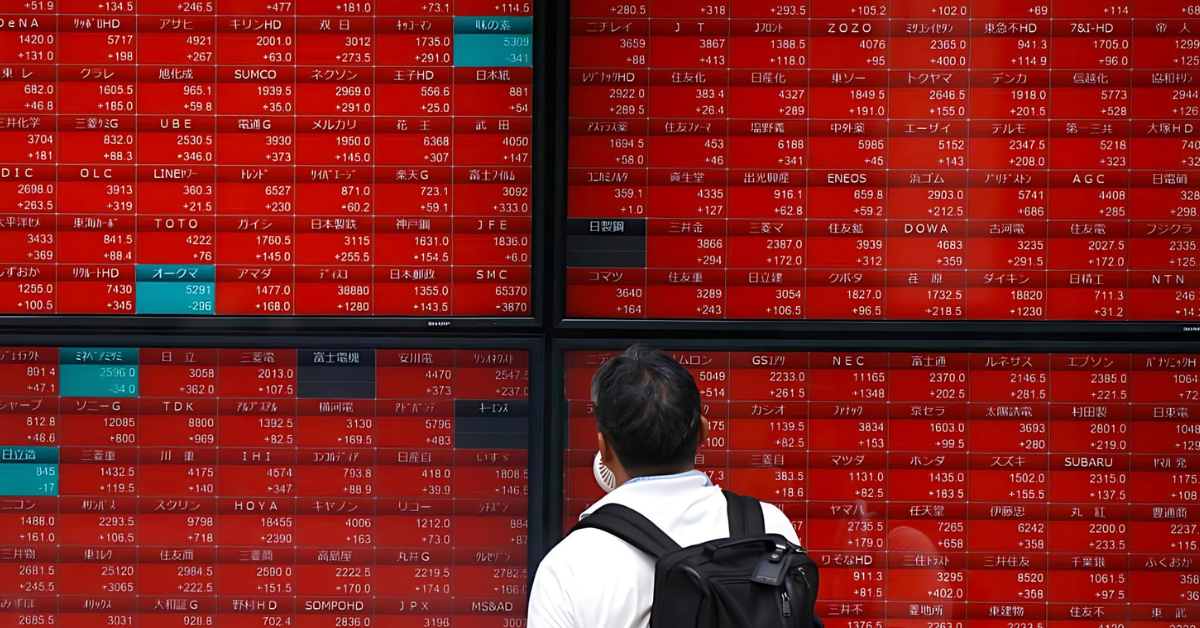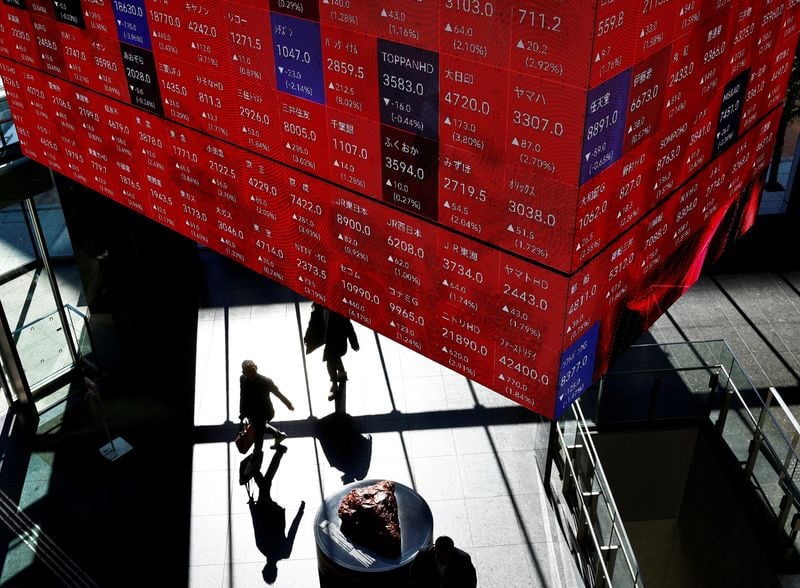Today’s News
Japanese stocks made a dramatic recovery in Tuesday’s morning trading session, bouncing back sharply from their biggest single-day decline since the 1987 Black Monday crash.

Image Source: Radio New Zealand
The Nikkei index soared by 9.4% to 34,416.32, while the broader Topix index climbed 9.3% to 2,434.21. This remarkable rebound follows Monday’s steep 12.4% drop, triggered by global market plunges and concerns over U.S. recession risks, alongside the unwinding of investments financed by a historically cheap yen.
Khoon Goh from ANZ highlighted that this isn’t the first time the Nikkei has managed to recover from double-digit declines, citing similar rebounds after the 2008 global financial crisis and the 2011 Tohoku earthquake.
However, he noted, “But it took a while before the Nikkei clawed back all those losses.” Despite Tuesday’s strong performance, the Nikkei still faces a significant recovery challenge, having shed a massive 113 trillion yen in market value from its July peak to Monday’s close.
Stephen Dover from Franklin Templeton emphasized the difficulty in diversifying equity risk during major market corrections, stating, “Monday’s collapse was a reminder that it is next-to-impossible to diversify equity risk by region (or by sector or style) during major corrections or bear markets.”
He believes it’s too soon to dive back into the market, suggesting, “Opportunity will arise, but in our view, it is premature to step in at this point.”

Image Source: Market Screener
Notably, significant gains were led by prominent tech firms, with Tokyo Electron and Advantest posting rises of over 16% and 14.5%, respectively.
SoftBank Group also saw a notable increase, up 9.3%. The trading session was so volatile that it triggered circuit breakers multiple times, temporarily halting trading in Topix and Nikkei futures.
Last week’s interest rate hike by the Bank of Japan, the sharpest in 15 years, has also intensified market jitters, raising fears of an overly aggressive tightening that could destabilize the market.
Kenji Abe of Daiwa Securities reflected on these concerns, saying, “The market was afraid (the BOJ) may tighten too fast.” Additionally, BlackRock Investment Institute expressed concerns about potential policy missteps by the BOJ, indicating they are reassessing their optimistic stance on Japan.
Other News
Record Volatility Spike Amid Recession Fears
Wall Street’s ‘fear gauge,’ the VIX, soared to its highest level since October 2020, marking the largest ever intraday jump due to escalating U.S. recession fears.
U.S. Banks See Surge in Loan Demand
For the first time in two years, U.S. banks have reported stable demand for commercial and industrial loans, according to a Federal Reserve survey.
Global Markets Tumble Amid Yen Surge
A sharp yen increase after Japan raised interest rates sparked a worldwide market selloff, with Tokyo’s Nikkei dropping 12% and major U.S. indices also suffering significant losses.
Risk Disclosure:
Securities, Futures, CFDs and other financial products involve high risks due to the fluctuation in the value and prices of the underlying financial instruments. Due to the adverse and unpredictable market movements, large losses exceeding your initial investment could incur within a short period of time.
Please make sure you fully understand the risks of trading with the respective financial instrument before engaging in any transactions with us. You should seek independent professional advice if you do not understand the risks explained herein.
Disclaimer:
This information contained in this blog is for general reference only and is not intended as investment advice, a recommendation, an offer, or an invitation to buy or sell any financial instruments. It does not consider any specific recipient’s investment objectives or financial situation. Past performance references are not reliable indicators of future performance. Doo Prime and its affiliates make no representations or warranties about the accuracy or completeness of this information and accept no liability for any losses or damages resulting from its use or from any investments made based on it.
The above strategies reflect only the analysts’ opinions and are for reference only. They should not be used or considered as the basis for any trading decisions or as an invitation to engage in any transaction. Doo Prime does not guarantee the accuracy or completeness of this report and assumes no responsibility for any losses resulting from the use of this report. Do not rely on this report to replace your independent judgment. The market is risky, and investments should be made with caution.



